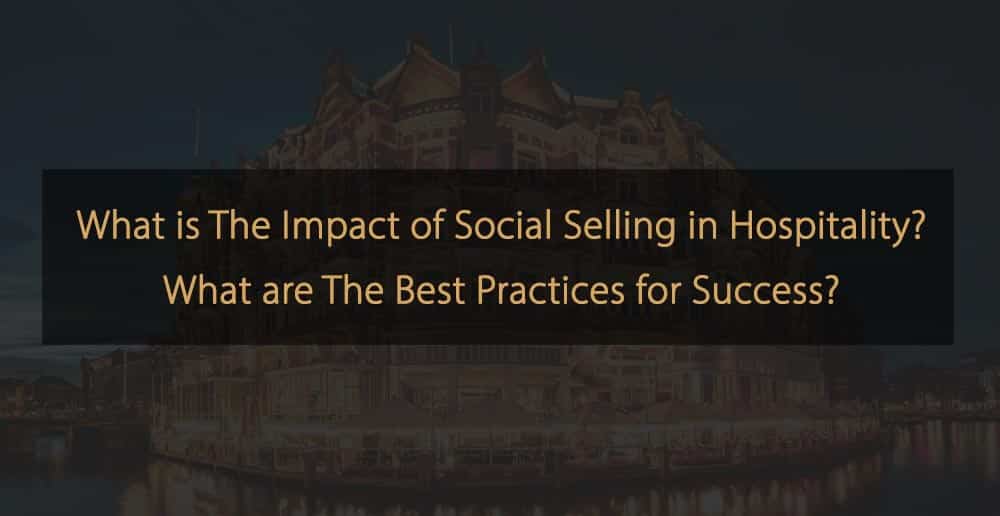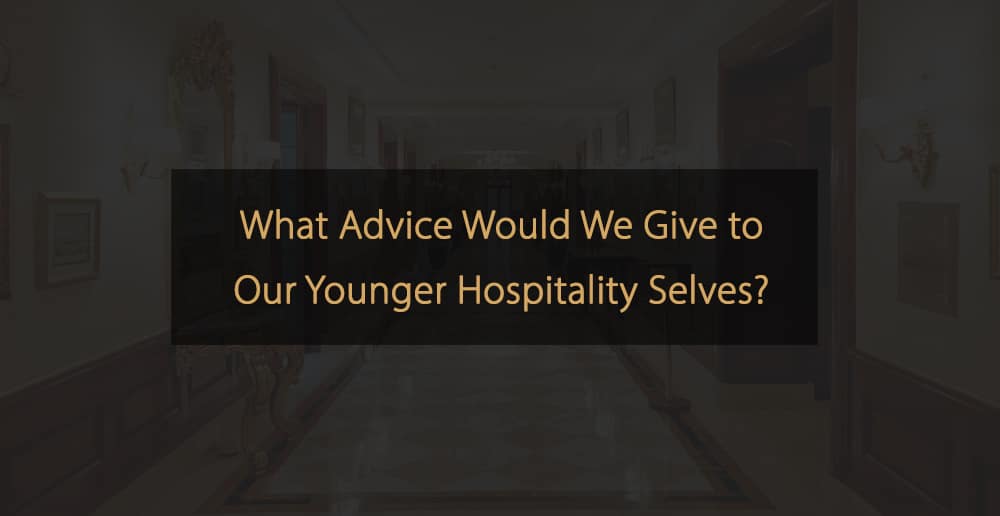Question pour notre panel d'experts en marketing hôtelier
De bonnes critiques sont essentielles dans l’industrie hôtelière. Quelles sont vos meilleures pratiques pour maintenir un excellent Net Promoter Score et une gestion réussie de votre réputation ? (Question proposée par Adele Gutman)
Groupe d'experts de l'industrie
Notre panel d'experts de l'industrie est composé de professionnels de l'industrie de l'hôtellerie et du voyage. Ils ont des connaissances complètes et détaillées, une expérience de la pratique ou de la gestion et sont avant-gardistes. Ils répondent à des questions sur l'état de l'industrie. Ils partagent leurs points de vue sur des sujets tels que la gestion des revenus, le marketing, les opérations, la technologie et discutent des dernières tendances.
Notre panel d'experts en marketing
- Adele Gutman – Experte en culture et expérience client, Podcast marketing de la réputation de l'hôtellerie
- Susanne Williams – Directrice des performances et des revenus, Journey Hospitality
- Tamie Matthews – Conseillère en revenus, ventes et marketing, RevenYou
- Daphne Beers – Propriétaire, Your-Q Hospitality Academy
- Moriya Rockman – Chef du marketing, Smiling House Luxury Global
- Nicole Sideris – Fondatrice et consultante principale, X Hospitality
- Tim Kolman – Expert en stratégie commerciale
- Reshan Jayamanne – Stratège marketing et ventes numériques, Bnb Optimized
- Max Starkov - Professeur adjoint de technologie hôtelière, Université de New York
- Luminita Mardale – Directrice du marketing et du développement commercial, Vienna House
- Jacopo Focaroli – PDG et fondateur, The Host
- Grazia Dell'Aquila – Consultante en hôtellerie, IAMGRAZIA
- Mattias Dybing – Fondateur et directeur, Nuvho | Société de services et de gestion hôtelière
- Jolien Alferink – Consultante en marketing hôtelier, Orange Hotel Marketing
- Linda Bekoe – PDG, APLBC
- Posez une question à notre panel
- Rejoignez notre panel d'experts
« Lorsque j'étais vice-président d'une collection d'hôtels, je me suis donné pour mission de me concentrer sur l'expérience client afin que nous puissions fidéliser davantage nos clients, offrir une valeur perçue plus élevée, avoir un taux d'occupation, un ADR et une rentabilité plus élevés. Nous avons suivi notre indice GRI-Guest Review sur ReviewPro qui nous a reconnu comme ayant un GRI de 96,1 (%), le plus élevé de toutes les marques d'hôtels de luxe du secteur. Nous avons également eu l'hôtel #1 dans le monde et les hôtels classés #1, #2, #3 et #4 à New York, j'écris donc un livre sur le sujet, mais voici en résumé la méthode de principe qui fonctionnera pour quiconque est prêt à s’engager dans l’effort ! Il m'a fallu 20 ans pour apprendre à en arriver là et j'apprends encore grâce à l'apport de mes associés et à l'inspiration d'autres stars de l'hôtellerie.
LA MISSION EST REINE :
En équipe, imaginez le type d’avis que vous souhaitez recevoir et soyez l’équipe de l’hôtel qui inspire ce genre d’avis ! Soyez fidèle à la mission et laissez-la guider toutes vos actions et décisions.
PARTAGER:
Partagez une vision inspirante de l’hospitalité avec votre équipe. Chaque voyageur veut et mérite d'être traité comme un VIP lorsqu'il voyage. Vous n'avez pas besoin d'organiser un défilé pour eux, il suffit de leur apporter un peu de soleil pour les élever et qu'ils se sentent les bienvenus.
Faites en sorte que chaque invité se sente SE SOUCIER: Soigné, apprécié et respecté à chaque rencontre.
INVITER et INCLURE :
Demandez à votre équipe de vous rejoindre dans une mission de bienveillance, de collaboration et d’amélioration continue. Efforcez-vous d’embaucher des personnes dont les yeux s’illuminent sur la mission, la vision et les valeurs de l’entreprise. Ensuite, continuez à parler de la mission et de la manière de l'appliquer à leurs actions quotidiennes lors des réunions quotidiennes. Inspirez-les, racontez des histoires de grande hospitalité et donnez-leur les moyens de se libérer de la peur et de faire ce qu'ils estiment être juste pour les clients, dans des paramètres raisonnables. Demandez-leur chaque jour de vous faire savoir de quel soutien ils ont besoin de votre part pour réussir à rendre leurs invités plus heureux.
Adoptez les commentaires :
Propriétaires, directeurs généraux, DOSM et tous les chefs de service – Il est temps de faire face à la vérité sur votre expérience et de lire vos avis chaque jour. Pas une analyse sémantique de fin de mois. Pour réussir, il faut ressentir la douleur dans la voix de vos invités et de vos collaborateurs pour mettre tout votre cœur dans le jeu, et il faut regarder les plaintes avec sérénité dans leur contexte pour pouvoir poser sereinement les bonnes questions lors de la recherche. causes profondes et opportunités de modifier/itérer vos communications, processus, mentalités, systèmes et produits. N'oubliez pas que ce n'est jamais la faute des employés. C'était notre travail de leur donner les outils, les compétences, la formation et l'inspiration nécessaires pour faire ce qu'il fallait, et nous les avons embauchés, alors ne blâmez pas le personnel et ne leur faites pas peur. C'est contre-productif. Travaillez simplement avec eux pour trouver de meilleures options à essayer la prochaine fois.
COLLABORER:
Trouvez des moyens de doubler ce que les gens aiment et assurez-vous que chaque invité vit une expérience VIP. Vous n'obtiendrez pas d'avis 5 étoiles pour un traitement « transactionnel » qui est simplement « poli et professionnel ». Les gens veulent être impressionnés ! Les expériences « Wow » viennent de la générosité. « Du soleil étincelant » sur le client à chaque point de contact. En gardant à l’esprit la mission, la vision et les valeurs, continuez à micro-innover (à peaufiner) le parcours des clients chaque jour.
RÉPARE LE:
Collaborez avec votre équipe pour trouver les causes profondes des problèmes lorsqu'ils surviennent dans les avis et trouvez des moyens d'innover dans l'expérience client pour éliminer ou au moins réduire le point de friction. Ce qui tue la joie de vos invités tue aussi l’énergie de votre équipe. Si vous souhaitez fidéliser vos invités et vos employés, ne vous concentrez pas uniquement sur la personne en face de vous. Les dirigeants travaillent avec leurs équipes pour planifier comment éliminer ou diminuer les points de friction pour chaque invité à l'avenir.
SUIVEZ-LE :
Les avis mitigés sont un obstacle à l'optimisation des revenus, alors suivez votre NPS, les notes des avis clients et votre classement sur Tripadvisor ainsi que vos KPI financiers sur vos réunions P&L mensuelles. Vos scores reflètent votre efficacité opérationnelle, votre culture et constituent un indicateur avancé de votre réussite financière future.
CÉLÉBRER:
Partagez vos avis 5 étoiles partout où votre personnel peut les voir ! Incluez votre classement Tripadvisor dans vos rapports nocturnes et célébrez avec votre équipe chaque étape de votre parcours vers votre objectif de satisfaction client 100%. Non, vous n'aurez jamais de scores parfaits, mais cela ne veut pas dire que vous ne pouvez pas vous amuser en essayant ! Vous ne saurez jamais jusqu'où votre équipe peut aller tant que vous n'aurez pas atteint les STARS ! »
« Les avis sont essentiels pour les hôtels. Vous voulez que la majorité soit positive et élogieuse, mais parfois la façon dont vous répondez à un avis négatif peut être tout aussi puissante.
À titre de bonne pratique, assurez-vous de répondre à chaque avis dans les meilleurs délais. Les réponses doivent être authentiques et pas trop à l’emporte-pièce. Si vous ressentez une quelconque négativité, adoptez une approche pratique et laissez toute émotion de côté dans la réponse. Inciter le personnel à encourager les clients à laisser des avis est un excellent moyen d'augmenter le nombre d'avis que vous recevez. La mise en place de systèmes permettant de gérer facilement toutes les plateformes d'avis est également une bonne pratique.
Les clients recherchent toujours la réputation d'un hôtel et ce que les gens disent de lui sur les réseaux sociaux ainsi que sur TripAdvisor avant de s'engager dans leur réservation, cela doit donc être au premier plan des préoccupations de vos équipes marketing et opérationnelles.
« Lorsque je travaille avec un hôtel pour améliorer ses notes, je commence toujours par l'éducation. Le personnel et les propriétaires doivent comprendre que de petites améliorations du score moyen entraînent des augmentations plus importantes de l'ADR.
Le personnel doit être informé des causes et des effets de ce qu'il fait au quotidien, de la manière dont cela affecte le sentiment des clients et donc les revenus. Les revenus affectent le nombre d’employés pouvant être employés et le budget consacré aux améliorations hôtelières. Les avis doivent être partagés avec toute l’équipe. Des séances de brainstorming doivent avoir lieu sur la manière dont nous pouvons améliorer le service et en offrir davantage. Rien ne changera à moins que l’équipe ne s’approprie son rôle dans l’amélioration des scores.
Autres astuces qui fonctionnent :
- Incitations à l’amélioration des notes d’évaluation
- KPI pour les chefs de service
- Rotation des personnes qui répondent aux avis
- Partager de bonnes critiques lors des réunions d’équipe
- Partager avec le personnel qu'il existe un plan pour donner suite aux avis négatifs
- Poursuivre ledit plan d'action
Si le personnel peut voir le changement se produire, il s’investira dans la prestation d’un service amélioré.
- « Gérez à l'avance les attentes concernant vos niveaux de service. Assurez-vous de connaître leurs attentes et expliquez à vos invités ce à quoi ils peuvent, mais surtout ce à quoi ils ne peuvent PAS s’attendre ! Soyez franc.
- Sous promesse et plus livrer
- Avoir des objectifs clairs (y compris un plan d'action) et un SLA
- Créer des méthodes de travail pour fournir un service et une qualité cohérents
- Formez et développez votre personnel et responsabilisez/inspirez-le pour y parvenir
- RÉPONDEZ À VOS AVIS de manière authentique et ingénieuse (ou engagez un expert pour le faire à votre place et transformer vos avis en revenus !)
- Célébrez les réussites »
« Être en contact avec vos clients et les encourager à laisser un avis est le moyen le plus courant. Une autre façon consiste à suivre la recommandation d'un client pendant son séjour. De nombreux hôtels disposent d’applications dédiées que les clients doivent utiliser pendant leur séjour. Ces applications suivent les activités et les installations utilisées et peuvent obtenir un avis tout au long du séjour. A la fin du séjour, l'application peut envoyer un message aux clients, résumant leur expérience globale et leur proposant de simplement confirmer.
Dans le secteur de la location saisonnière, les avis des clients sont liés à la plateforme sur laquelle la réservation a été effectuée. Dans beaucoup d'entre eux, les avis sont adressés à l'hôte et notent la propriété sous sa gestion. Cette mise en avant crée une situation dans laquelle les hôtes se battent pour leur bonne réputation et prennent les avis très au sérieux, en essayant d'éviter tout mauvais avis dès qu'un problème survient. Ce lien entre les hôtes et les propriétés doit être pris en compte dans l'espace hôtelier pour créer un cercle de réputation plus large, impliquant le personnel et la direction. Une bonne évaluation profite à tous.
« À une époque où l'activité Airbnb reste un moteur important, la manière de faire des affaires dans les hôtels pourrait être alignée sur le modèle Airbnb. Airbnb souhaite généralement une réponse dans un délai de 2 à 3 heures, alors que l'on sait que les décideurs des hôtels répondent encore traditionnellement du lundi au vendredi. Je pense qu'il faut répondre aux demandes et aux avis dans un environnement en temps réel dans un délai de 3 heures. Cela maintient un taux de réponse sain, qui constitue un indicateur de score clé. Si un avis ne reçoit pas de réponse dans les délais, cela indique que l'hôtel ne peut pas fonctionner dans un environnement 24h/24 et 7j/7, ce qui devient une exigence.
« Technologie et soyez là où sont vos invités ! Connaître et utiliser les mêmes canaux que ceux utilisés par vos clients peut toujours contribuer à améliorer l'expérience client et vous mettre en mesure de résoudre de manière proactive les problèmes de service. La mise en œuvre de technologies telles que les chatbots et la surveillance des réseaux sociaux peut permettre à votre hôtel de communiquer avec vos clients de la manière dont ils souhaitent communiquer, réduisant ainsi les risques d'avis négatifs. En interne, l’adaptation technologique peut également améliorer les flux de travail lors du traitement d’un problème client.
Il est révolu le temps où le client se présentait à la réception pour déposer une plainte (par exemple, un problème de CVC). L'agent du bureau enregistre la plainte et le numéro de chambre dans le grand livre rouge derrière le bureau et procède à l'ingénierie radio via talkie-walkie. Ensuite (et c'est peut-être) l'ingénierie effectuera les réparations nécessaires, communiquera au bureau par radio que la tâche a été effectuée, l'agent du bureau enregistrera la réparation dans le grand livre rouge et communiquera avec le client que la réparation a été effectuée. Comme le dit le proverbe… « il y a une application pour ça ! »
« Pour la plupart des gens, le NPS démarre à l'hôtel lors du processus d'enregistrement. Dans une économie numérique en croissance rapide, je ne suis pas d’accord sur le fait que cela commence directement en ligne. Selon moi, l'expérience d'un client commence au moment de la recherche d'un emplacement approprié. Ensuite, une fois votre emplacement découvert, l'expérience de la réservation, jusqu'au service client et jusqu'au séjour et au départ de vos locaux, font partie de l'expérience qu'un client vit avec vous.
Par conséquent, le NSP, à une époque où nous sommes limités en contact avec d’autres humains, l’expérience totale doit être considérée comme faisant partie du NPS. En moyenne, le secteur hôtelier a un NPS total de 53. Vous pouvez être supérieur ou inférieur. Peu importe le score, c'est l'occasion d'améliorer votre expérience. Une chose que tous les hôteliers et hébergeurs peuvent faire est de communiquer plus souvent avec les clients. N'hésitez pas à recevoir une mauvaise critique ou un faible NSP. Abordez-le de front, cherchez à comprendre pourquoi et répondez à chacun. Ceux qui vous donneront un score inférieur peuvent devenir vos plus grands promoteurs si vous les contactez et faites de votre mieux pour résoudre le problème. Vous et votre équipe avez le pouvoir de changer les choses.
En termes de praticité, vous pouvez disposer d'un simple plugin d'avis flottant sur chaque site Web page, moteur de réservation et paiement pour comprendre l'expérience client en ligne. Sur le terrain, investissez dans la compréhension de l'expérience client à chaque point d'interaction avec les clients, vous pouvez activer un code QR pour fournir des commentaires avec une récompense (le cas échéant) pour simplement vous avoir donné des commentaires. Vous constaterez qu’il existe 3 catégories de personnes. Promoteurs, détracteurs et passifs. Cherchez à comprendre et à convaincre les détracteurs, à nourrir les promoteurs et à encourager/conquérir les personnes passives. Utilisez ces commentaires pour développer votre entreprise en profondeur et comprendre réellement ce que ressentent vos clients sur site, hors site et en ligne.
Enfin, n'oublions pas votre équipe. Votre équipe est votre plus grand atout. Cherchez à développer la profondeur avec votre équipe et motivez-la à produire de meilleurs résultats. Célébrez ensemble les jalons et récompensez l’excellence tout en encourageant l’amélioration. Mettez en place des systèmes qui veillent à leur bien-être et leur donnent du plaisir au travail. Pourquoi? Parce que les travailleurs heureux produisent le MEILLEUR travail. Et les employés qui donnent le meilleur d’eux-mêmes veillent à la satisfaction des clients. Et les clients satisfaits ne pourront pas se taire devant votre qualité ! »
« La meilleure façon de gérer la réputation en ligne de votre propriété et de tirer le meilleur parti des ambassadeurs de la marque et de l'indice de sentiment positif de votre propriété est de vous abonner à une plateforme de gestion de la réputation en ligne (ORM) comme Revinate, ReviewPro et TrustYou. La technologie ORM vous permet non seulement de surveiller vos avis dans un seul tableau de bord et d'analyser les modèles à l'origine des mauvais avis, mais également de surveiller les avis de votre ensemble de produits et d'utiliser leurs faiblesses pour améliorer votre produit et l'efficacité de vos efforts marketing. .
Ce sont toutes des tactiques faciles à mettre en œuvre. Mais le plus grand avantage de la technologie ORM est de surveiller les tendances de l'indice de sentiment de votre propriété, c'est-à-dire la façon dont le public voyageur perçoit votre propriété. Vous pouvez également utiliser le flux de données ORM Sentiment pour vos décisions RMS et de gestion des revenus. Naturellement, plus l'indice de sentiment de votre propriété est élevé, plus les tarifs que vous pouvez facturer sont élevés. L'Université Cornell et ReviewPro ont découvert une corrélation directe entre l'indice de sentiment et les prix et ont même proposé une formule concrète.
« Dans un secteur hôtelier en évolution rapide, il est important d'écouter les commentaires des voyageurs d'aujourd'hui et les utilisateurs de 96% sur TripAdvisor considèrent les avis comme importants lors de la planification de voyages et de la réservation d'hôtels.
À Vienna House Easy Airport Bucarest, nous sommes fiers d'avoir augmenté notre score TripAdvisor, même pendant la pandémie, lorsque nous travaillons avec un personnel et des services réduits. Comment faisons-nous cela ? Nous demandons constamment des commentaires et essayons d’anticiper leurs besoins. Nous essayons de résoudre tout problème sur place, afin que le client ne reparte pas mécontent. Nous sommes une petite équipe, mais travaillons par passion pour cette industrie. Si nous regardons les commentaires des clients, nous constatons qu’ils apprécient le plus le personnel de l’hôtel.
« Les mauvaises critiques proviennent généralement de circonstances « effet boule de neige » lorsqu'un problème n'a pas été résolu rapidement et/ou efficacement. Lorsque nous ne sommes pas attentifs, intuitifs ou authentiques, si nous ne créons pas de familiarité et de reconnaissance ou si nous ne nous considérons pas comme des psychologues plutôt que de simples « prestataires de services automatisés », nous ne verrons que de mauvaises critiques. Après tout, j’espère que notre industrie se concentrera davantage sur des managers inspirants, capables d’instaurer la confiance dans des équipes autonomes, engagées et bienveillantes.
Par expérience, les mauvaises équipes apportent de mauvaises critiques tandis qu'une bonne équipe peut récupérer et empêcher une mauvaise critique avant même le départ du client. De plus, aux yeux d'un invité plaintif, une bonne équipe qui tente de résoudre le problème bat une mauvaise équipe qui cherche quelqu'un à blâmer (ou pire). Les CRM et les chatbots (plus que les formulaires à remplir, selon l'étude de Salesforce) sont beaucoup plus susceptibles d'aider les hôteliers à suivre, recueillir des commentaires en interne, récupérer immédiatement et générer une expérience sur mesure pendant et après le séjour, donc une meilleure réputation en ligne.
« Lorsque le client vient dans un hôtel, il s'attend à un haut niveau de service. Cependant, ils peuvent être satisfaits ou déçus. Dans le premier cas, lorsque les clients sont satisfaits, l’expérience client est le résultat de la différence entre attente et réalité et alors le résultat est donc supérieur à leurs attentes. Cela conduit au sentiment de fidélité du client envers l'hôtel et les autres établissements. Dans le deuxième cas, lorsque les clients sont déçus, cela signifie que l'hôtel a mal agi envers le client, donc les attentes des clients n'ont pas été satisfaites et sont déçues par le service reçu.
Combien de fois un client s’est-il plaint à la réception, mais s’est simplement excusé sans pouvoir prendre aucune mesure pour résoudre son mécontentement ? Ce qui se passe alors, c'est que le client insatisfait partira et ne considérera plus utile de se plaindre à nouveau. Leur frustration entraînera un bouche à oreille qui nuira à l'image de l'hôtel, perdant à la fois le client qui vient de partir et l'éventuel futur client qui a reçu le bouche à oreille négatif et rédigera une mauvaise critique. En cas d'insatisfaction, le client peut recourir à une réclamation, qui peut souvent devenir une opportunité donnée à l'établissement de rectifier la situation et d'offrir un meilleur service au client.
Recherchez toujours des commentaires, à chaque point de contact que vous avez avec le client. On les retrouve dans l'ascenseur ? Demandez-leur ensuite leurs commentaires. Passent-ils à la réception pour demander des informations ? Ensuite, nous essayons d'avoir des retours sur le séjour.
Pour pouvoir avoir un feedback pendant le séjour puis avant le départ, nous pouvons utiliser les moyens suivants :
– Réseaux sociaux / Blogs / Forums / Enquêtes en ligne / Questionnaires.
– Il existe une gamme de logiciels Review pour gérer la communication avec les invités.
Il est également important d'organiser et de conserver des rappels des appels de suivi à passer pendant le séjour, ou d'envoyer des e-mails permettant de prendre contact rapidement et efficacement avec les clients en interne. Une fois que vous recevez des commentaires, ne créer aucune interaction, c'est comme laisser votre invité à la réception pendant des heures et des heures à attendre votre réponse pendant que vous vous occupez d'autre chose. Nous ne pouvons pas rester impassibles face à la frustration perçue par nos clients. Au lieu de cela, trouver la manière la plus courtoise de rechercher une solution à une plainte suscite l’intérêt et augmente la confiance dans votre organisation, créant ainsi un plaidoyer pour les clients.
Cadeaux de bienvenue, gadgets pour les clients, pensées spéciales pendant leur séjour à l'hôtel et cadeaux d'adieu sont de précieuses armes marketing qui améliorent la réputation de la marque, des gestes qui rendent l'expérience de séjour plus agréable, font sourire et laissent un bon souvenir.
Voyager avec des enfants demande plus d'organisation, nous devons donc rendre le séjour de nos clients aussi confortable que possible et créer de précieux souvenirs. Prévoyez des équipements spécifiques pour les enfants (lits et lits bébé, tables à langer, chauffe-biberons, accessoires de bain, chaises hautes et peignoirs), préparez des menus spéciaux pour enfants ou disposez d'un service de baby-sitting pendant le séjour. Si les clients perçoivent une attention particulière pour eux et leur famille, ils seront encouragés à rédiger des avis positifs et à publier du contenu sur les réseaux sociaux.
Pour maintenir un score net de promoteur élevé, suivez toujours la méthode HEART (Entendre, faire preuve d’empathie, s’excuser, résoudre, remercier) :
– Entendre : Écoutez l’invité
– Empathie : faire preuve d’empathie
- S'excuser
- Résoudre; envie de trouver une solution
– Remercier : Rendre grâce »
« Empêchez les avis négatifs sur l'établissement en respectant ce qui est promis lors du processus de réservation (et sur papier) et, mieux encore, favorisez les avis positifs en livrant trop. À ce sujet, disposez d'un système permettant de reconnaître les problèmes dans la propriété, pendant que les clients sont toujours là, afin qu'ils puissent être corrigés. Cela devrait conduire à ne pas avoir peur de demander des avis, qui devraient être soutenus par un processus très simple permettant aux anciens clients de laisser un avis. Pour poursuivre et clôturer le cycle, répondez à TOUS les avis, positifs ou négatifs, afin de pouvoir conserver un récit qui a un certain niveau de contrôle et de pragmatisme, car tous les commentaires des clients ne sont pas raisonnables.
« Tout d'abord, il est évidemment essentiel que toute l'équipe de l'hôtel s'engage auprès de vos clients et veille à ce que vous répondiez et dépassiez les attentes. Assurez-vous que les descriptions de vos hôtels, vos offres, etc. sont à jour partout et que votre produit est à la hauteur de la façon dont vous l'avez vendu.
Tous les avis doivent être lus, traités de manière professionnelle et traités en conséquence, montrant ainsi aux futurs clients potentiels que vous vous souciez de vous et que vous renforcez la confiance dans le processus.
« Il est important de répondre à chaque avis, qu'il soit bon ou mauvais. Avant la pandémie, certains hôtels disposaient de personnel clé responsable de la réputation en ligne. Je suggère que si les hôteliers ne peuvent pas le faire en interne, ils doivent l'externaliser.
Posez une question et rejoignez notre panel d'experts
Souhaitez-vous que notre panel d'experts de l'industrie réponde à une question? Ou souhaitez-vous rejoindre notre communauté d'experts et partager votre expérience, vos idées et vos connaissances avec d'autres professionnels de l'industrie ? Via les boutons ci-dessous, vous pouvez soumettre une question ou soumettre une demande pour faire partie de notre panel d'experts.
Plus de conseils pour développer votre entreprise
Revfine.com est la plateforme de connaissances leader dans le secteur de l'hôtellerie et du voyage. Les professionnels utilisent nos connaissances, nos stratégies et nos conseils pratiques pour s'inspirer, optimiser leurs revenus, innover dans leurs processus et améliorer l'expérience client.Découvrez des conseils d'experts sur la gestion, le marketing, revenue management, les opérations, les logiciels et la technologie dans notre Hôtel, Hospitalité, et Voyages et tourisme catégories.






















Leave A Comment